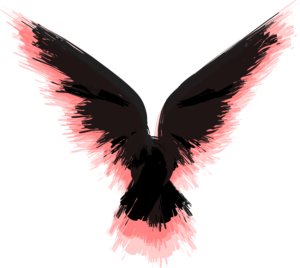Where can you go to cool off outside? What makes the home coolest at night? Have you ever wondered what would happen if you drank too much water? What does marble have to do with staying cool? Find out on this episode!
Many things can be done to stay cool in the heat without an air conditioner. Today we are going to cover five more of them.
6) Shade
Did you know that the air temperature in the shade is the same air temperature as it is in the sunlight? Yeah, I didn’t either, but I did know that I feel much hotter in the sunlight than in the shade. This is because thermal radiation from the sun heats the body and anything else in it. Just not the air, apparently.
Shade is a good place to cool down because you will no longer be heated by the sun. If you are like me, it might help stave off sunburns. Ok, fine, I’ll likely still get sunburned, but a girl can hope!
7) Knowing when to open and close windows
Windows do let light into the house, but that was not the only reason they were originally made. On top of lighting a room, windows also help regulate the home’s temperature.
During summertime, the windows can be opened in the evening to let the cool night air into the home. Anytime we lived without air conditioners, we often placed a fan in the window at night to draw the cool night air in and cool the house down. If one side of the home has a fan coming in, and the other has a fan aimed going out, this will help make an airflow that will cool the house down. If this is done in the daytime, it makes a nice cross breeze to allow the character’s body sweat to do its job to cool the body down. It also helps get rid of any heat from cooking, if that is needed. Remember, if it is very hot, most people try not to do things that make the home hotter. If you are writing before fans, there will only be a cross breeze as strong as the wind outside blowing into the window.
Also, many people close the windows and curtains when the sun starts to come up to try to keep the inside of the home cool as long as possible during the day. This can keep the home cooler for several hours but will eventually heat up again. There are a few issues with this. First, the home has no airflow to let the body’s sweat do its job if it is very hot. Second, many people leave them closed for too long, and the home becomes hotter than the outside. I’ve personally messed up on both of those.
There are a few downsides to having the windows open, but most people can live with them. The noises from outside can be heard far more easily. Also, the outside can likely hear what is happening inside if your characters are talking, singing, fighting, or being loud. Another thing is that if bug screens were not invented, bugs will get into the home.
Remember, before glass windows, they had shutters. These could be made of many things, from flimsy cloth shutters to the common wood shutters and even the marble shutters of Greece. Shutters also kept the rain out of the home and helped as a barrier to keep out wild animals when needed. It was also used as ventilation for wood smoke when cooking, by opening it a crack to fully open depending on the needs.
8) Cool showers/baths
Another way to cool off is to take a cool or even cold shower or bath. This is a quick way to help the body cool down. This is because the body responds to the skin temperature change. This will help your character feel cooler. Cool sponge baths can even help to cool your characters. Remember, showers and sponge baths are temporary cooling methods, and the body will warm again soon.
A cool bath, however, can help them stay cooler longer. The reason is that they are immersed in the water, and the cool temperature of the water is in direct constant contact with many main arteries in the body. This helps to cool the blood before it is pumped to the heart. In turn, it helps to cool the body’s core temperature. This is why cool water emersion is one thing that is recommended as a first aid tool for heat exhaustion and heat strokes when there is no doctor or emergency help. Perhaps your character lives before a time with hospitals, they could live deep in the jungle, or there might not be medical help after a disaster or the apocalypse. The apocalypse might be a disaster in more ways than one!
9) Lowest level of the home (heat travels up)
The lowest level of the home is almost always the coolest level of the house. This is not every time, but it is the vast majority of the time. When I was younger, I was told it was because heat travels up. While I do still repeat this saying, it is just a saying. You see, heat and cold can travel in any direction, but when the main force on the heat or cold is gravity, that is when heat ‘travels’ (as a figure of speech) up and the cold down. Granted, the whole thing is more complicated to explain, but that is it in a nutshell. I will leave links to learn more in the show notes on my website!
10) Drink plenty of water to stay hydrated so you can sweat and naturally cool off
Drinking plenty of water or other hydrating liquids is vital to the body. Your character will need to replenish the fluids they have lost while they were sweating. Staying hydrated helps to regulate the body’s core temperature. Adequate hydration also supports brain function. If your character’s brain is not functioning correctly, they are in big trouble!
If your character is working in the heat, they will need to drink between 8 oz or one cup of water every 15-20 minutes. That means they should drink around one quart of water every hour they work. If they work in the field or make bricks for four hours, that means they should drink four quarts of water which is equal to one gallon of water.
Never let your character drink more than 1 1/2 quarts of water per hour. This can cause a medical emergency called hyponatremia. This is when the sodium or salt levels in the blood become too low. Sodium controls the amount of water in and around the cells in your body. A lack of sodium can cause swelling of the cells and potentially be life-threatening.
Signs and symptoms of hyponatremia are,
* Headache
* Muscle cramps
* Muscle spasms
* Muscle weakness
* Nausea or vomiting
* Confusion
* Restlessness
* Irritability
* Fatigue
* Low energy
* Drozyness
* Seizures
* Loss of conciseness
* Coma
* Or even death, though let’s hope the other signs were spotted first, and they were able to get help. However, these signs and symptoms do not point to one thing the same way a visibly broken arm would. In history or even post-apocalyptic stories, they might not know what is wrong with the character or how to help them. Also, these signs and symptoms cross over with many other issues and could be misidentified. Heat exhaustion and heat stroke have many of these symptoms, and since they were in the heat also, they could easily be mistaken.
Fun fact: The Greeks invented shutters in roughly 800 BC, and they were made of marble.
What could possibly go wrong:
Likely to go wrong: Your character has no shade to cool down in. Not only do they have problems staying cool, but they also sunburn. This makes everything feel hotter.
Likely to go wrong: Your character did not drink enough water or other hydrating fluids to replenish what they lost while sweating in the heat, and they become dehydrated.
Possible to go wrong: Your character leaves the door open, and someone eavesdrops on a conversation inside the house. This could be a child, a nosy neighbor, or even a bad guy.
Possible to go wrong: Your character opens a window to let the breeze in, but the wind is not blowing, and there is no airflow through the home.
Unlikely to go wrong: Your character tries to sleep in the attic of the house on a hot summer night. Even if they have the windows open at night, it will still be hotter in the attic than it would be on the bottom floor of the home. Being too hot at night can make it challenging, if not impossible, to sleep.
Unlikely to go wrong: Your character decides to take a cool shower, and right as they lather their hair up, there is a power outage. Without power, their water doesn’t work.
Improbable, but technically still in the realm of possibilities: Your character drinks an entire gallon of water in an hour. This causes their body to experience hyponatremia, and they soon die from the effects.
Improbable, but technically still in the realm of possibilities: Your character takes an ice bath, and the heat to cold shocks their system, causing them to pass out in the bath and drown.
Helpful Links to Learn More:
Shade:
https://parade.com/893151/marilynvossavant/is-it-really-cooler-in-the-shade/
https://parade.com/893151/marilynvossavant/is-it-really-cooler-in-the-shade/
Shutters:
Does heat rise:
https://www.wondriumdaily.com/misconceptions-of-thermodynamics-does-heat-really-rise/
Staying hydrated:
https://www.bexar.org/3132/Staying-Hydrated-in-the-Heat
Hyponatremia:


